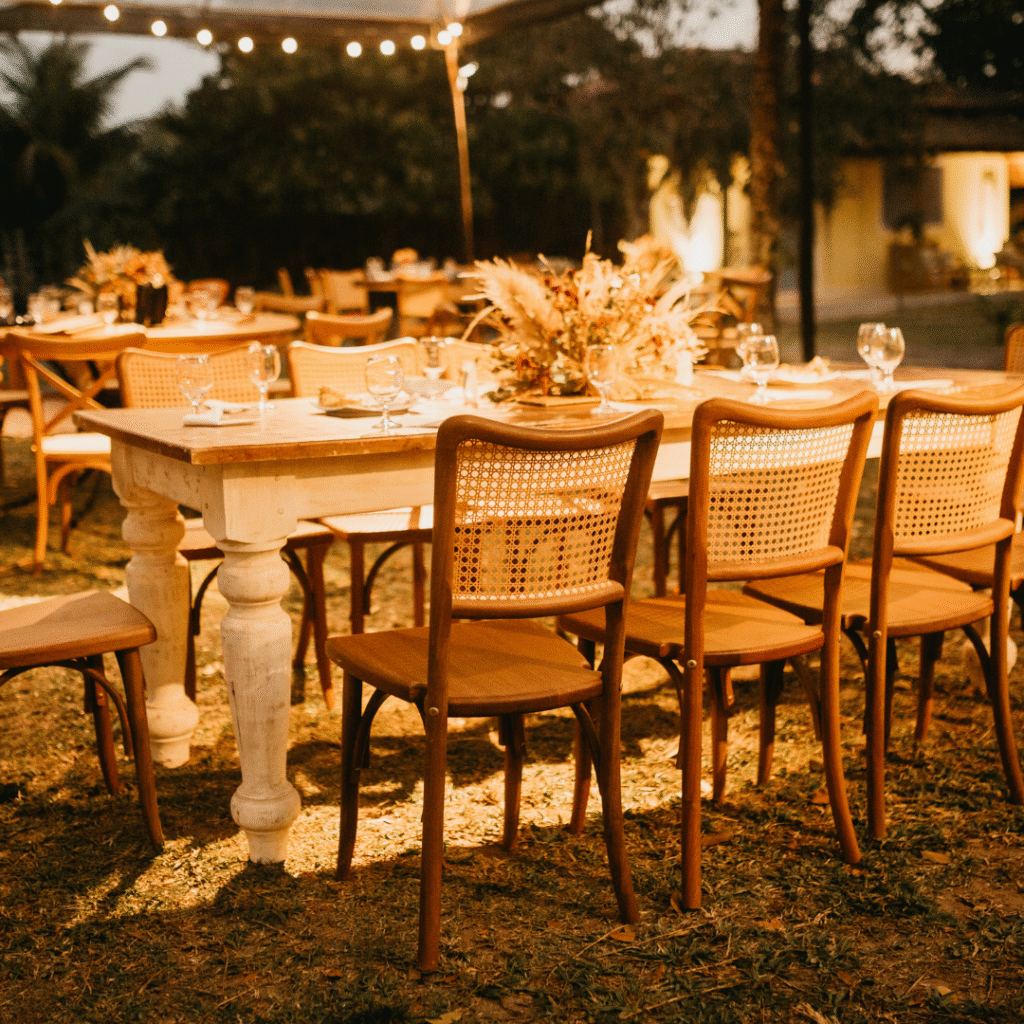Choosing the perfect wedding venue is a crucial element in planning a memorable celebration. Factors such as location, capacity, and ambience should align with the couple’s vision and style. Understanding the unique features and limitations of each venue helps couples make a more informed decision.
The venue sets the tone for the entire event, influencing everything from the guest experience to the overall theme. It is essential to visit potential locations, evaluating their layout and facilities in person. This hands-on approach allows couples to envision their dream day and assess whether the space caters to their needs.
Budget considerations also play a pivotal role in selection. Couples must balance their aspirations with financial reality, ensuring they select a venue that not only captivates them but also fits into their wedding budget. Careful planning and research can lead to the ideal choice for an unforgettable day.
Defining Your Wedding Priorities
To choose the perfect wedding venue, it is essential to clarify priorities. This involves deciding on the guest list, determining the desired wedding style, and establishing a budget that aligns with these factors.
Establishing Your Guest List
The guest list is a crucial element that directly influences the venue choice. Couples should start by compiling a preliminary list of invitees, considering family and close friends first.
Creating segments can be helpful, such as:
- Essential attendees: Those whose presence is non-negotiable.
- Optional guests: People whose attendance would be appreciated but not critical.
Knowing the estimated number of guests will help narrow down venue options. More guests require larger spaces, and this will impact the overall experience.
Determining Your Ideal Wedding Style
The wedding style significantly shapes the venue’s atmosphere. Couples should consider whether they envision a formal celebration, a relaxed gathering, or a themed event.
Questions to contemplate include:
- Indoor or outdoor? Each option presents unique possibilities and challenges.
- Traditional or modern? This can influence décor and venue type.
Visualising the overall aesthetic aids in finding a venue that complements these ideals. This alignment ensures that the venue enhances the couple’s vision for their special day.
Setting a Realistic Budget
Establishing a budget is fundamental in wedding planning. It helps determine what is feasible within the financial framework.
Couples should consider:
- Venue costs: Rental fees, catering, and service charges.
- Unexpected expenses: Additional costs may arise for decor or amenities.
Creating a budget spreadsheet can offer clarity and serve as a guide throughout the wedding planning process. Keeping the budget realistic reduces stress and allows for more enjoyable planning experiences.
Evaluating Venues for Your Perfect Day
Selecting the right venue is essential for a flawless wedding. Important factors include location, accessibility, accommodation options, and caterers. Examining these elements carefully ensures the chosen site meets all expectations.
Assessing Location and Accessibility
When assessing a wedding location, its accessibility is crucial. The venue should be easily reachable for guests, particularly for those travelling from afar. Consider proximity to major roads, public transport links, and nearby accommodation options.
Additionally, think about the surrounding environment. An elegant ballroom in a scenic setting may enhance the wedding atmosphere. Ensure that the site accommodates all guests comfortably, including those with mobility issues. Verify that there are both visible and sufficient directions for guests arriving at the venue.
Accommodation and Parking Considerations
Adequate accommodation for guests is vital. Look for venues with nearby hotels or inns, offering special rates for wedding attendees. A venue that includes on-site lodging can significantly enhance convenience, especially for those travelling long distances. Search for a blend of beautiful event space and comfortable guest accommodations at Woodlands Hotel, or similar venues, to ensure a stress free experience for your guests, allowing them to fully enjoy the celebration without worrying about travel after the festivities.
Parking availability is also important. Ensure there is enough space for vehicles and consider options for guests without cars. Valet services and designated drop-off points can enhance the experience, making it easier for guests to arrive and leave.
Conducting Essential Site Visits
Site visits are critical in evaluating potential wedding venues. Physically touring a location provides insights that photos and reviews cannot. During the visit, assess the space’s layout, accessibility, and overall atmosphere.
Take note of specific features such as the condition of the facilities and decor style. Consider the flow of the ceremony and reception within the space. Engaging with staff during the visit can help gauge their professionalism and willingness to accommodate specific needs.
Comparing In-House and External Caterers
Understanding catering options is essential for a successful event. Venues may have in-house caterers or allow external catering services. In-house caterers often offer comprehensive packages, providing a seamless experience.
If an external caterer is preferred, verify that the venue permits outside catering and understand any associated fees. Compare menu options, pricing, and flexibility in catering styles. Considering the tastes of guests is crucial, as satisfactory catering can leave a lasting impression.
Being thorough in venue evaluation helps create the perfect day tailored to specific needs and visions.
Understanding Venue Packages and Policies
Venue packages and policies significantly impact the wedding planning process. Couples should consider the specifics of available packages, clarify financial commitments, and understand support options from coordinators.
Exploring Wedding Packages
When evaluating wedding packages, it’s vital to assess what each package includes. Many venues offer tiered packages, ranging from basic to all-inclusive options that might encompass catering, decor, and even coordination services.
Review the specific elements of each package. Is there a limit on guest numbers? Are there upgrades available for services like catering or beverage options?
Couples should inquire about additional fees that may not be included in the package price. Sometimes, extra costs arise from upgrades, overtime, or amenities such as sound equipment and lighting. A clear understanding of what is provided will help prevent unexpected expenses.
Analysing Deposit and Cancellation Policies
The deposit structure is crucial in securing a wedding venue. Most venues require a deposit to reserve the date, which can range from 10% to 50% of the total cost. It’s important to note when this deposit is due and if it is refundable under any circumstances.
Cancellation policies vary significantly and typically outline the conditions under which the deposit may be retained or refunded. Couples should pay close attention to deadlines, as cancelling within a specific timeframe may incur higher charges.
Understanding these policies is essential to mitigate financial risks should unforeseen circumstances arise that require changes to plans.
Working with a Wedding Co-ordinator
A wedding co-ordinator can facilitate a smoother planning process. Many venues employ their own co-ordinator, tasked with overseeing logistics and responding to queries.
When engaging with a coordinator, couples should clarify their role. Are they responsible for managing vendor meetings, timeline creation, and day-of coordination?
Effective communication is key. Establishing a rapport with the co-ordinator can ease stress, ensuring that the couple’s vision is realised. It’s also advantageous to know if the co-ordinator can accommodate specific requests or preferences for the wedding day, making them a valuable asset in achieving a memorable event.
Ensuring a Seamless Wedding Experience
Choosing the right venue is crucial for an effortless wedding day. The following aspects will help create a smooth-flowing ceremony and celebration while considering all guests’ needs.
Planning the Wedding Ceremony and Reception
When selecting a venue, it’s essential to ensure it accommodates both the wedding ceremony and reception. Look for spaces that allow for seamless transitions between events, which keep guests engaged and maintain the wedding’s momentum.
The layout should support easy navigation. Clear pathways, signage, and a logical flow between areas are vital. Venues with separate indoor and outdoor options offer flexibility in case of inclement weather, ensuring that plans can adapt without stress.
Consider the venue’s amenities, such as sound systems, lighting, and seating arrangements. These elements significantly impact the atmosphere and guest experience, so choose a space that meets specific needs while allowing for personal touches.
Accommodating Special Guest Needs
Each guest brings unique needs that should be factored into the planning process. It’s vital to consider accessibility for those with mobility challenges. Ensure that the venue has ramps, accessible restrooms, and designated seating.
Dietary restrictions should also be addressed. Select a caterer that provides diverse menu options to cater to varying dietary preferences, including vegetarian, vegan, and gluten-free choices. Communicate these options clearly in invitations or at the reception.
Lastly, consider the age range of attendees. Providing spaces for both lively gatherings and quieter areas allows guests to choose how they wish to engage, enhancing their overall experience.
Celebrating with Confidence
Confidence in the planning process stems from comprehensive preparation. Utilising a checklist can assist in tracking tasks, deadlines, and vendor communications. This approach minimises the risk of overlooking details that contribute to a seamless wedding day.
It’s advisable to host a rehearsal at the venue. This practice session familiarises everyone with the layout and schedule, helping to alleviate any anxiety. By ensuring all participants understand their roles, the day can unfold effortlessly.
Incorporating contingency plans is another significant aspect. Prepare for various scenarios, such as weather changes or unexpected delays, to maintain a calm and collected atmosphere. This foresight allows the couple and guests to relax and fully enjoy the wedding celebrations.

